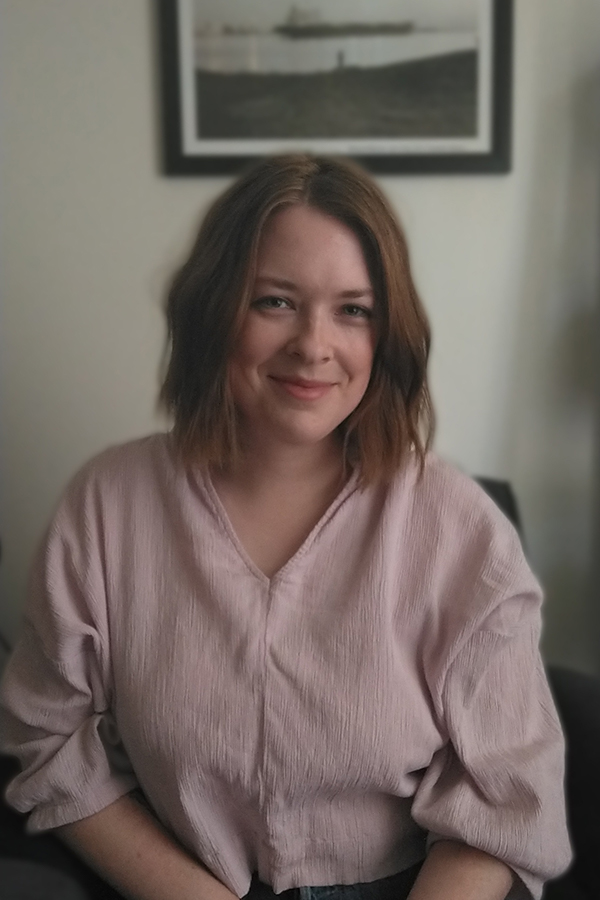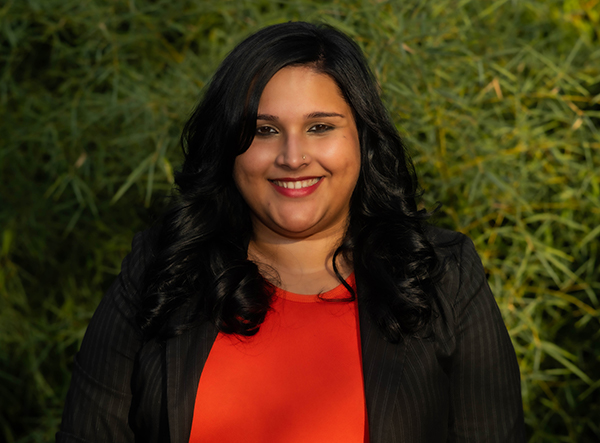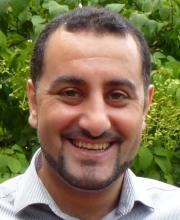
It’s quite the fusion of talents joining the ranks of Allegheny College’s faculty in the fall of 2020. From scholars in modern Arabic literature and French and Francophone studies to a former economic analyst for a global banking firm, Allegheny’s new faculty members bring unique backgrounds and qualities to the campus classrooms this academic year. Let’s meet each of them briefly:
Sami Alkyam
Assistant Professor of Arabic
With Sami Alkyam, Allegheny is not only welcoming an assistant professor in the Department of World Cultures and Languages, but also a new director of Muslim student life.

Sami Alkyam
Alkyam holds a Ph.D. in Arabic language and literature as well as a doctoral minor in second language acquisition from the University of Wisconsin-Madison. He will teach Arabic language and culture classes and core classes in international studies at Allegheny. He previously worked at Harvard University from 2012 to 2018.
His research interests include modern Arabic literature and cultural studies; gender and sexuality studies; trauma and the war novel; Arabic dictator novels; film and television studies; Postcolonial and literary theory; Arabic literary translation, and African literature in translation.
“In my current research I explore the manifestations of dictators and dictatorships in contemporary literary genres — the representation of its various configurations and the politics of (re)writing history. Currently, I am working on a manuscript in which I study the aesthetics of death in contemporary Iraqi literature. More than any time in the history of modern Iraq, poetry and fiction have been bound to social and political events in Iraq. Iraqi literature today reflects the trauma of a nation torn between omnipresent war and reminiscence of three decades of dictatorship,” he says.
“As such, I describe Iraqi writers today as ‘bereaved storytellers’ who give voice to the wounds of their nation and people. I will finish the manuscript in the next two years,” Alkyam adds.
His work has appeared in the Journal of Postcolonial Studies, Journal of Literature and Trauma Studies, Journal of Arts and Humanities and Journal of Studies in Literature and Language. He also works on literary translation.
“I am a true believer of diversity; in fact, I am especially drawn to Allegheny given its vibrant and diverse community and the emphasis on internationalism and interculturalism as well as my department’s commitment to teaching languages. In the classroom, I view teaching, not as a career or task, rather as a passion. It is this passion that pushes me to teach Arabic language and literature in the clearest and most effective manner,” he says.
“I believe in making my class a changing experience for my students. Therefore, I see myself as a facilitator of student communication, rather than the center of the classroom. My main goal is to empower my students to engage while providing a classroom environment conducive to productive communication,” says Alkyam.
Away from academia, he is the father of two “beautiful kids: a girl, Uswah, and a boy, Karam, who are the center of my world. I like to play soccer; I like swimming and reading, too.”
Megan Bertholomey
Assistant Professor of Psychology
Megan Bertholomey knows a lot about small liberal arts colleges such as Allegheny. She is a graduate of Knox College, where she was a studio art major and psychology minor. “My medium was clay. Other than the commercial pottery painting classes, there usually aren’t many public resources/studio spaces for ceramicists, so I look forward to making friends in the Art Department and hope to one day collaborate or audit a class with them,” she says.

Megan Bertholomey
Bertholomey also served as both a teaching assistant and an instructor in introductory psychology classes during her Ph.D. training at Indiana University-Purdue University, Indianapolis. She taught a course called “Drugs and Behavior” at the University of Pittsburgh for three fall semesters during her postdoctoral training. Last year, she was a visiting assistant professor at Chatham University, covering graduate-level introductory neuroscience courses with labs, as well as an undergraduate-level introductory biology class.
Her research interests include understanding the factors contributing to and mechanisms underlying the risk of drug abuse and other conditions like anxiety, depression and post-traumatic stress disorder that tend to co-occur with substance use disorder. “One major and well-known contributing factor is stress, but there is still much we don’t know about how stress affects the brain to lead to or exacerbate these disorders,” she says.”Because of my research experience, I’m very interested in teaching neuroscience and psychology topics related to drug use and abuse, psychopharmacology, neuroendocrinology, sexuality/sexual behavior, learning and memory, research methods and statistics.”
She says that “while most of my artistic talents have gone into making research posters and PowerPoints, I do like to paint and draw when I can. I was also a member of the dance collective when I was in college — mine was called Terpsichore — so a similar Greek naming convention to Orchesis — and love to dance, although I don’t have much formal training.”
She also considers herself “to be a bit of a foodie and a craft beer aficionado, so I love to cook and plan to eventually try my hand at home brewing using one of the many kits that have been gifted to me over the years. I am also a reservoir of random knowledge that comes in very handy for trivia — especially music trivia, as well as pop culture references from the ’90s and ’00s.”
Delia Byrnes
Visiting Assistant Professor of Environmental Science & Sustainability
Delia Byrnes joins the Allegheny community by way of Canada, where she was raised, and the University of Texas at Austin, where she studied and eventually taught in the English Department.
“I’m joining the Environmental Science and Sustainability program at Allegheny through a somewhat unusual route: I’m not even a scientist! Rather, my Ph.D. in English and my experiences teaching literature inform the humanities approaches I bring to environmental studies,” says Byrnes. “Over the past four years, I’ve taught courses on oil culture, apocalyptic fiction and film, African American literature, and multi-ethnic environmental culture at the University of Texas at Austin. I’m thrilled to join such a rich interdisciplinary community at Allegheny, and I’m especially excited to collaborate with students on projects that center environmental justice.”
Byrnes earned her bachelor’s degree from Simon Fraser University in British Columbia and her master’s and doctorate from the University of Texas.
She focuses her research on contemporary environmental art and storytelling, focusing on how writers, artists and other mediamakers harness their imaginations to produce new knowledge about environmental relations. “I’m especially interested in the ways that fossil fuel shapes our daily lives, and how Black, Indigenous, and People of Color authors illuminate more just and habitable futures,” says Byrnes.
When she’s not in her Carr Hall office, Byrnes says she is a movie and television fan “and will find any opportunity to teach my favorites, from the FX series ‘Atlanta’ to Janelle Monáe’s Afrofuturist epic, ‘Dirty Computer.’ When I’m not reading or watching something, I love wandering around town on foot or on my bike, and as a Canadian, I am beyond excited to experience the four seasons in Meadville!”
The most consistent part of her time in Meadville so far: “My weekly visits to Hank’s Frozen Custard.”
Priyanka Chakraborty
Visiting Assistant Professor of Economics
It has been quite a year for Priyanka Chakraborty. She graduated from Southern Methodist University with her Ph.D., won the Melody Rice Memorial Award for her dissertation “Essays on Issues in Management and Gender” and “was truly excited to travel cross country from Texas to Pennsylvania and join the Allegheny family!”
It has been quite an academic journey for Chakraborty. Reading Keynes in college had a powerful impact on her and shaped the course of her passion for and career in economics. “I grew up in India and attained a college education through scholarships based on academic achievement,” she says. “I majored in economics at Presidency College and won the Gold Medal from Calcutta University. I explored New Delhi, jazz and micro and macroeconomics during my master’s at Jawaharlal Nehru University and read obsessively on game theory and behavioral economics, which I still do.”
She worked closely with counterparts from Great Britain for HSBC Bank as an economic analyst for a couple of years before traveling to Texas to attend the doctoral program at Southern Methodist University. “I taught classes independently, worked extensively as a teaching assistant and as a tutor and student counselor. The experiences during my academic and professional career gave me an immense appreciation of cross-cultural understanding and helped hone my teaching pedagogy which is geared toward creating an inclusive class environment and facilitating learning through discussion,” she says.
As an applied economist, she uses laboratory and field experiments, as well as survey data, to answer questions in behavioral and labor economics, with a focus on gender, education, management, leadership and mentoring. “My mantra is: ‘When it comes to understanding and changing human behavior, we can do better.’ My research broadly focuses on the economics of discrimination and disparities in the labor market with an overarching goal of understanding and mitigating gender and racial gaps. I am interested in finding policy interventions that promote healthy, efficient and more inclusive workplaces,” she says.
She has traveled extensively, exploring new cities and local cultures, food, films and music. “My favorite cities in the world so far are Jaipur, Boulder, Ann Arbor, Mexico City, Antigua, Kuala Lumpur and Alexandria,” says Chakraborty. “I love finding new coffee shops, record stores, bookshops and theatres. I am a cinephile, adore the works of Satyajit Ray, Wes Anderson and Alejandro Jodorowsky, and have enjoyed working with the South Asian Film Festival and Oak Cliff Film Festival in Texas. Being an epicure, I love creating fusion food and bakes with Asian and American influences.”
While she has been classically trained in Hindustani music, “I enjoy listening to Ella Fitzgerald as much as Ravi Shankar, and among my most-prized possessions are autographed Jimi Hendrix and Ravi Shankar vinyl records straight from the ’60s!”
Emma Chebinou
Visiting Assistant Professor of French
Emma Chebinou is welcomed into the World Languages and Cultures Department as a well-traveled scholar and is thrilled to collaborate with new faculty and students. Her education began in France, where she received her bachelor’s degree from the Université Paris XII- Créteil, and then her first master’s degree from the Université Sorbonne Nouvelle in Paris. Chebinou then came to the United States, where she earned her second master’s degree from the University of South Florida and then her Ph.D. from Florida State University.
As a new faculty member of the Diversity Teaching Fellowship, Chebinou is dedicated to sharing her diverse and multi-layered experience through the curriculum. She hopes that by teaching diversity-related topics, students will be in a position to be aware of their identities as well as others’ differences, which leads to not only their achievements but also to the expansion of their horizons. This approach will lead them to acquire cultural competency to interpret the world and its sophisticated facets.
“I see the classroom as a safe space to exchange knowledge,” says Chebinou. “Besides the fact of seeing excitement on the students’ faces when they understand concepts, I look forward to learning from them, which informs my research and personal life. This couldn’t be done without our students’ insightful ideas.”
During this current pandemic, Chebinou’s main goal is to maintain the human dimension in her classes.
“I want to turn the new COVID adjustments in class into a positive asset rather than obstacles to teaching and learning,” says Chebinou. “Technology has always made the classroom more appealing, and the Zoom implementation is beneficial in helping me create and explore a new teaching approach.”
Chebinou’s academic interests are wide-ranging, from societal issues such as urban problems, violence, discrimination and freedom and civil rights, to hip-hop and stand-up comedy, to African (North and Sub-Saharan) and Caribbean literature. She also has research interests in French national ethnic, gender and religious identity; second- and third-generation of immigrants and diaspora in literature; 20th- and 21st-century French and Francophone studies; Postcolonial studies and African-American studies.
Her hobbies are as varied as her academic pursuits. Chebinou enjoys singing old and contemporary rhythm and blues and Gospel songs, and she has sung in gospel choirs. Her talents extend into the culinary world, as she likes to cook African and French food and is especially good at making crepes. “Coming from France, I love designer fashion,” shares Chebinou. “I am such a shoe collector that I would need an entire room to fit them all! I also like discussions about astrology and Feng Shui.”
Dara Coleby Delgado
Assistant Professor of Religious Studies
Dara Coleby Delgado joins Allegheny’s Department of Philosophy and Religious Studies as an asset for fostering global perspectives in the classroom.
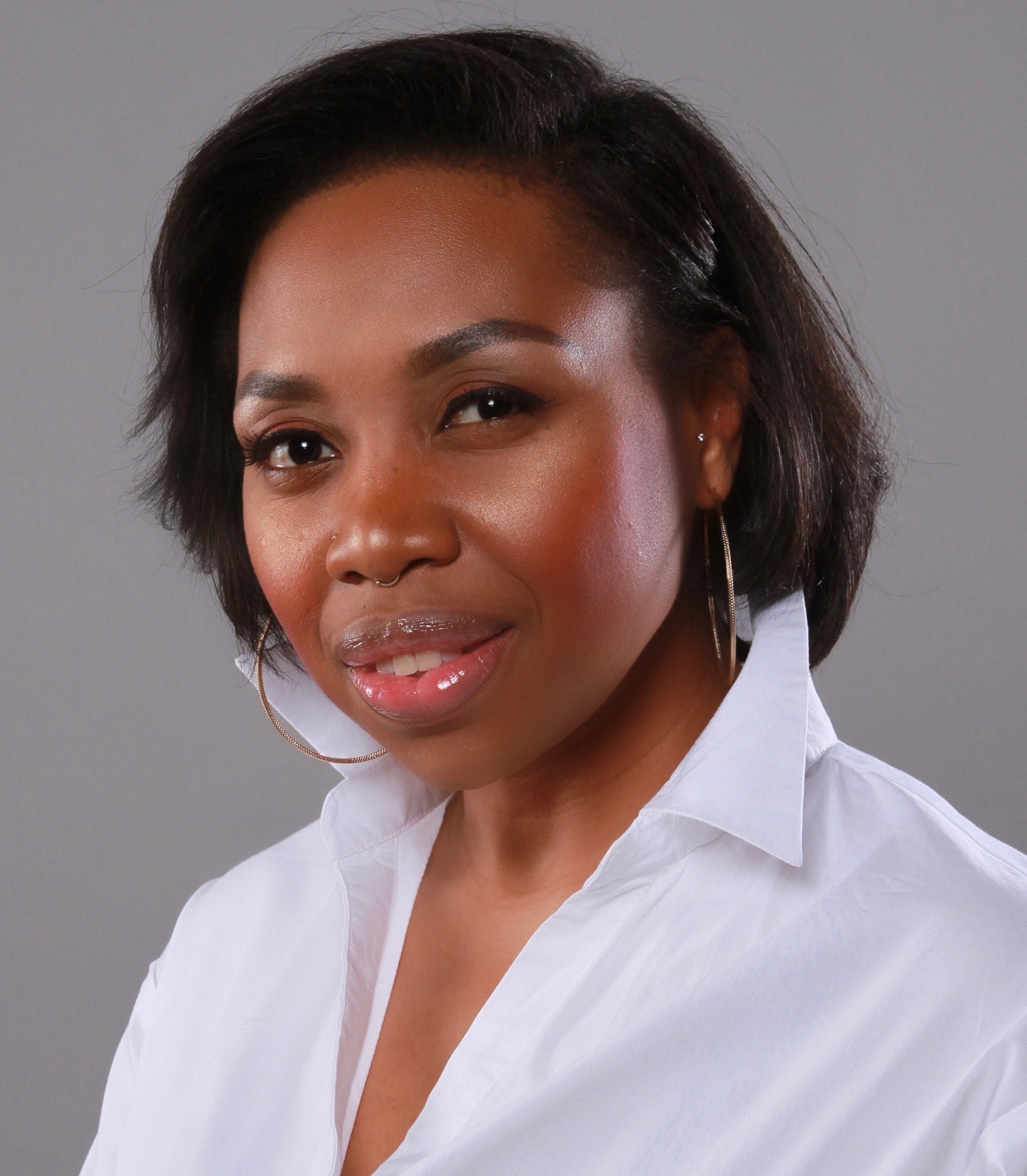
Dara Coleby Delgado
“My objective as a teacher is to foster a student-focused learning environment that both challenges and motivates students to develop their own learning interests and critical thinking skills,” says Delgado. “Specifically, through trusting student-teacher relationships and safe learning-centered classrooms, I see myself as partnering with my students as they develop into independent globally minded scholars. Ultimately, the goal is to explore how religion challenges us to think critically about the human experience, with particular attention to the Christian traditions and their impact on history and culture.”
An AAUW 2018-2019 American Dissertation Fellow, Delgado’s research interests include the history and theology of American Christianity (Pentecostalism), as well as the role of race, gender and popular culture in American religion during the modern era. These interests culminated in her dissertation, “Life, Liberty, and the Practicality of Holiness: A Social Historical Examination of the Life and Work of Ida Bell Robinson.”
Before joining the faculty at Allegheny, Delgado completed a bachelor’s degree at Niagara University in history, a master’s at Northeastern Seminary, a Master of Theological Studies at Tyndale University College & Seminary, and a Ph.D. at the University of Dayton in theology. At the University of Dayton, she taught traditional undergraduate students in the Department of Religious Studies and then taught New Testament and Ethics in the Department of Religion and Philosophy at Roberts Wesleyan College in Rochester, New York.
“When I am not teaching and writing, I am enjoying the company of friends and family, volunteering, and attending concerts and shows,” says Delgado.
Guadalupe Lupita Gonzalez
Assistant Professor of Psychology
Guadalupe Lupita Gonzalez brings experience in cognitive neuroscience with her to Allegheny. She received her bachelor’s degree in psychology and business administration from Bethel College and a Ph.D. in psychology from the University of Texas at Austin. She also has instructional experience from leading psychology labs at Bethel.

Guadalupe Lupita Gonzalez
Gonzalez has a passion for social justice and increasing diversity in higher education which has driven her research into the effects of social contexts on racial biases in socio-cognitive processes (for example, attention, interaction intentions).
“I use electroencephalography (EEG/ERPs) and eye-tracking to answer questions such as ‘How does the social context influence the perception of racial outgroups?’ and ‘How is the perception of racial outgroups associated with racially biased behavior?’” says Gonzalez. “My current research uses eye-tracking to investigate how competitive social contexts influence attention and memory for racial in-group and out-group members, as well as one’s willingness to interact with racial out-groups. I’m also interested in racial health disparities.”
In addition to her research, Gonzalez has been involved in different organizations and programs that aim to increase the number of minoritized individuals in higher education.
“I also love to read, cook (especially Mexican food) and travel to Mexico,” she says. “Spanish was also my first language so I can fluently speak, read and write in Spanish.”
Gonzales is musically gifted as well — she used to play the violin and also played in a mariachi during middle school and high school.
Chris Normile
Assistant Professor of Psychology
Chris Normile is joining the ranks of first-generation faculty members at Allegheny. He completed his bachelor’s degree in psychology at Bloomsburg University, master’s degree in experimental psychology at Towson University, and Ph.D. in applied experimental psychology at Central Michigan University.

Chris Normile
“My research focuses on the intersection of psychology and law,” Normile says. “More specifically I have studied police interrogations, false confessions and jury decision-making. My most recent work investigates people’s perceptions of wrongfully convicted exonerees. Pedagogically speaking, I’m interested in statistical learning in college students.”
Although Normile thoroughly enjoys research and teaching, he has a variety of other interests outside of the classroom.
“I’m a big fan of playing board games of all kinds, from silly party games to more complex Eurogames,” says Normile. “As an undergraduate I played club Ultimate Frisbee, which is a hobby I still enjoy today.”
Jesse Swann-Quinn
Assistant Professor of Environmental Science and Sustainability
Jesse Swann-Quinn grew up in an Allegheny Gator family — his mom and uncle both graduated from the College. Now, after earning a Ph.D. in geography from Syracuse University, Swann-Quinn has joined the Allegheny community as a faculty member in the Department of Environmental Science and Sustainability.
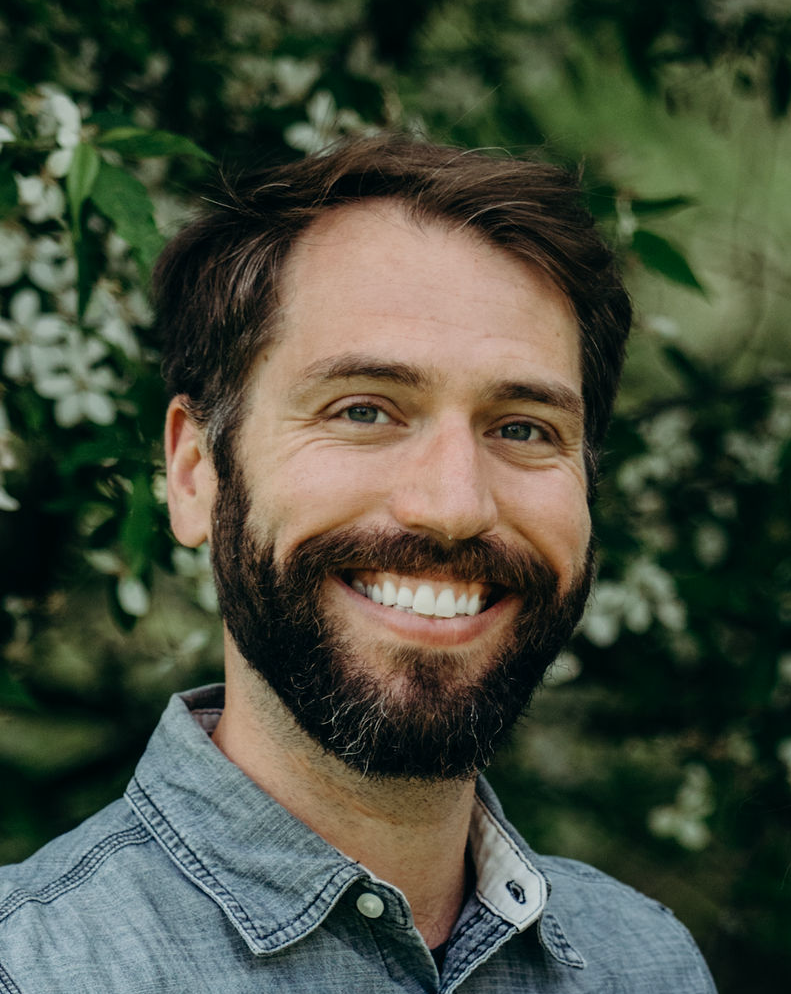
Jesse Swann-Quinn
Before entering graduate school, Swann-Quinn spent five years producing wildlife documentaries for National Geographic Television, and he served as a Public Humanities Fellow with the New York Council for the Humanities. Swann-Quinn says he draws on these transdisciplinary experiences in both his research and teaching.
Swann-Quinn taught at Syracuse as a graduate student and adjunct faculty member. His teaching focuses on the social science of global environmental politics, economics and culture, but it also incorporates elements of the digital and environmental humanities.
Swann-Quinn’s interests as a geographer center on environmental politics of natural resources, how humans struggle over and govern the environments around them, and a variety of other related topics in the environmental social sciences. “My research specifically examines the political and environmental effects of resource extraction, primarily focused on the former Soviet Union and South Caucasus,” Swann-Quinn says. He also has ongoing interests in urban environments, environmental justice, resource nationalism, animal studies, territorial conflict and media studies.
“When I’m not in the classroom or doing research, I like to be outside as much as possible, hiking and running when the weather’s warm and cross-country skiing when it isn’t,” Swann-Quinn says. He says he also enjoys “getting lost in old atlases” and following technology trends.
“My wife and I also just had our first child last winter,” Swann-Quinn says, “which has kept us extra busy these past few months (and made quarantine life that much more interesting).”
PJ Torres
Visiting Assistant Professor of Biology
While new to the Allegheny community, PJ Torres brings experience teaching at another Great Lakes Colleges Association institution, Denison University.

PJ Torres
At Denison, Torres served as a Consortium for Faculty Diversity fellow in 2015 and then as a visiting biology faculty member until spring 2018. His career has also included faculty positions in the biology departments at Queens University of Charlotte and, most recently, Colgate University. Torres holds a bachelor’s degree in environmental science from the University of Puerto Rico (Rio Piedras campus) and a Ph.D. in ecology from the Odum School of Ecology at the University of Georgia.
Torres’ research focuses on understanding the structure and function of freshwater ecosystems with emphasis on tropical headwater streams. His dissertation and current research is based on Puerto Rico, assessing the landscape-scale effects of large dams on headwater stream ecosystem processes.
“I’ve also worked with students in Costa Rica, Georgia and Ohio looking at how animal consumers influence whole-ecosystem processes such as decomposition, primary production and nutrient cycling. The current plan for my lab here at Allegheny is to continue this work both in Puerto Rico and locally using new study sites in Northwest Pennsylvania.”
Torres also plans to incorporate microorganisms and time into current and new projects. “In particular, we will be looking at synergies between aquatic fungi and animal decomposers, how their relationship determines the rate of organic matter breakdown, how the decomposition mechanisms change over time and how these respond to natural disturbance and seasonal variation.”
As an active member of the Society for Freshwater Science, Torres serves as an early career delegate on the board of directors and helps to coordinate the INSTARS program. INSTARS is a mentoring program during the Society for Freshwater Science annual meeting that provides help to undergraduate students from underrepresented groups who are interested in the study of freshwaters.
In his spare time, Torres enjoys fixing (“or breaking,” he says) stuff around the house, and he cooks most of his food over fire or charcoal. Torres also has played drums in three bands and can be found road-trip-chasing locally owned BBQ spots, limited-release beers and new baseball stadiums.
“I’m a big fan of advanced metrics and statistics in baseball,” says Torres, “and do a bit of work as a volunteer data analyst for CS:GO and Valorant eSports teams.”


